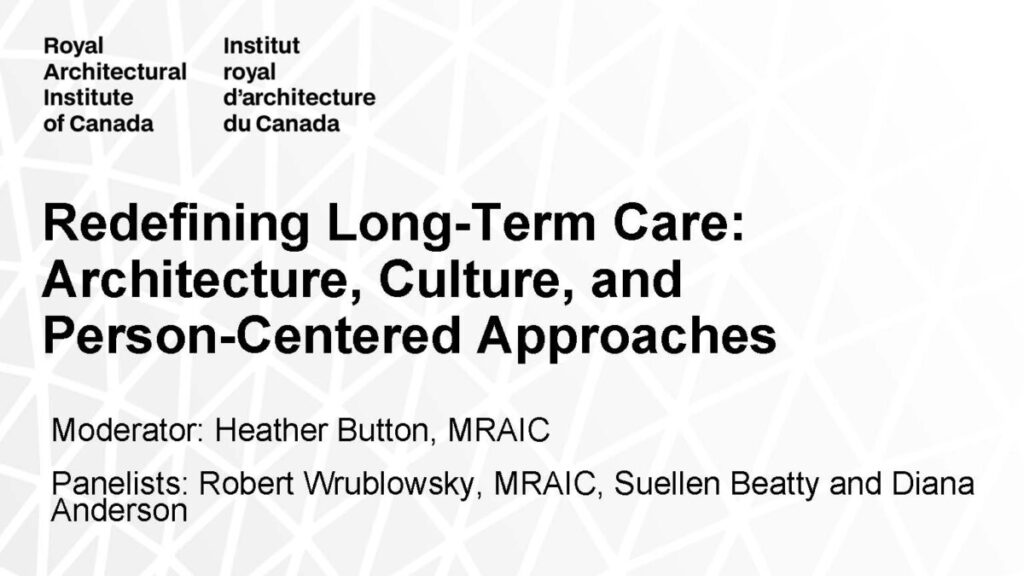Presentations
Organization: The Royal Architectural Institute of Canada (RAIC)
Title: Redefining Long-Term Care: Architecture, Culture, and Person-Centered Approaches
Date: September 3, 2025
The RAIC Long Term Care Design Working Group presents Redefining Long-Term Care: Architecture, Culture, and Person-Centered Approaches.
DESCRIPTION: Join us for a 90-minute moderated panel discussion exploring the evolving role of architecture in long-term care (LTC) and dementia-friendly environments. In this session, experts will address key issues such as redefining institutional care, fostering cultural change, and creating architectural solutions that prioritize person-centered care. Panelists will share their experiences with new models of care, the importance of individualized care plans, and the impact of inclusive design on quality of life for residents.
This engaging session will provide architects, designers, and care professionals with practical insights on how to design environments that support aging in place and individuals with dementia. The webinar will also feature a live Q&A and provide valuable resources for further learning.

For more information, click HERE.













